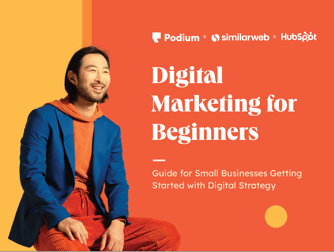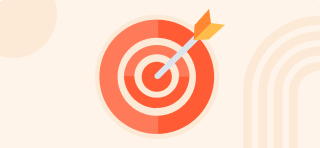-

Cultural Marketing: What It Is & How to Do It The Right Way [According to Expert...
If done right, cultural marketing can deepen your brand's connection with its target consu...
Erica Santiago
4/9/25
-

Everything You Need to Know About the Principles and Types of Design
Learn about the principles and types of design and how to apply them to your marketing col...
Allie Decker
4/9/25
-

49 Call-to-Action Examples You Can't Help But Click
Get inspired by real call-to-action examples from top brands — and learn how to write your...
Brittany Leaning
4/9/25
-

Meet the Founder Who Raised $6.3M to Literally Make It Rain
While billionaires buy up water rights, startup Rainmaker is taking a radical approach: us...
Cyan Zhong
4/8/25
From HubSpot's video library
-
.jpg?height=240&name=YT-237_A%20(1).jpg)
How to Start Affiliate Marketing With No Experience or Money (4 Free Tools!)
-

How Airlines Really Make Money | Hustlenomics | The Hustle
-
.jpg?height=240&name=IMG_0735%20(1).jpg)
What Entrepreneurs Can Learn From Native Deodorant
-

Meet the Designer Behind the Iconic Nudie Suit | Unknown Empires
-

Tips For Elevating Your Next Go-To-Market Strategy (+ Free Templates)
-

Why T-Mobile Trademarked This Color | The Hustle
-
.jpg?height=240&name=YT-237_A%20(1).jpg)
How to Start Affiliate Marketing With No Experience or Money (4 Free Tools!)
-

How Airlines Really Make Money | Hustlenomics | The Hustle
-
.jpg?height=240&name=IMG_0735%20(1).jpg)
What Entrepreneurs Can Learn From Native Deodorant
-

Meet the Designer Behind the Iconic Nudie Suit | Unknown Empires
-

Tips For Elevating Your Next Go-To-Market Strategy (+ Free Templates)
-

Why T-Mobile Trademarked This Color | The Hustle
-
.jpg?height=240&name=YT-237_A%20(1).jpg)
How to Start Affiliate Marketing With No Experience or Money (4 Free Tools!)
-

How Airlines Really Make Money | Hustlenomics | The Hustle
-
.jpg?height=240&name=IMG_0735%20(1).jpg)
What Entrepreneurs Can Learn From Native Deodorant
-

Meet the Designer Behind the Iconic Nudie Suit | Unknown Empires
-

Tips For Elevating Your Next Go-To-Market Strategy (+ Free Templates)
-

Why T-Mobile Trademarked This Color | The Hustle
-

Customer Feedback Management — Turning Desperate Comments Into Strategy
Feedback helps you understand customer sentiment, product issues, and pain points in UX. S...
Sarah Chambers
4/9/25
-

Making the B2B Customer Funnel Work for Your Team — Proven Strategies
Learn how to make a good customer funnel that will help your customers at every stage, fro...
Taylor Cromwell
4/8/25
-

AI Customer Service Agents: Transforming Modern Support for Faster, Smarter Serv...
Whether you’re a startup founder or a CX leader, this is your roadmap to leveraging AI cus...
Diego Alamir
4/7/25
-

I Took a Deep Dive Into Market Segmentation — Here's Everything I Learned
I took a deep dive into market segmentation. Here’s everything I learned.
Diego Alamir
3/18/25

An Introduction to Digital Marketing
Learn the basics of digital marketing and explore different ways to reach your ideal customer.
-

50+ Small Business Ideas for Anyone Who Wants to Run Their Own Business
Need small business inspiration? Our guide offers 70 ideas to kickstart your entrepreneurs...
Shadrack Wanjohi
4/9/25
-

Managing Partner: Who They Are and What They Do
What does it take to be a managing partner? This guide breaks down the key responsibilitie...
Jenny Bergen Clark
4/9/25
-

Shortcuts Salespeople Should Never Take, According to Experts
Not all shortcuts are created equal. Learn which sales mistakes to avoid to improve conver...
Aja Frost
4/9/25
-

The Buyer Motives Every Salesperson Should Know (+Tips from the Field)
There’s a reason for every purchase. Learn about 8 buyer motives and how to navigate emoti...
Dagny Dukach
4/8/25
From the HubSpot Podcast Network
-
Business Made Simple

Your Website Probably Stinks—Here’s How to Fix It!
-
The Science of Scaling

How to Scale a Billion Dollar Sales Team w/ John McMahon (Board Member, Snowflake)
-
Truth, Lies and Workplace Culture
-2.png?height=240&name=PodcastCovers23%20(1)-2.png)
From Bystander to Ally: How to Avoid DEIB Washing
-
Imperfect Action
-2.png?height=240&name=PodcastCovers23%20(4)-2.png)
The art of the post-launch review: 5 questions to make your next launch a success
-
Latinx In Power
.png?height=240&name=PodcastCovers23%20(6).png)
Harnessing the Power of Silence in Negotiation with Diana Kleps
-
The Sales Evangelist

5 Ways To Do Daily Outbound With LinkedIn
-
Business Made Simple

Your Website Probably Stinks—Here’s How to Fix It!
-
The Science of Scaling

How to Scale a Billion Dollar Sales Team w/ John McMahon (Board Member, Snowflake)
-
Truth, Lies and Workplace Culture
-2.png?height=240&name=PodcastCovers23%20(1)-2.png)
From Bystander to Ally: How to Avoid DEIB Washing
-
Imperfect Action
-2.png?height=240&name=PodcastCovers23%20(4)-2.png)
The art of the post-launch review: 5 questions to make your next launch a success
-
Latinx In Power
.png?height=240&name=PodcastCovers23%20(6).png)
Harnessing the Power of Silence in Negotiation with Diana Kleps
-
The Sales Evangelist

5 Ways To Do Daily Outbound With LinkedIn
-
Business Made Simple

Your Website Probably Stinks—Here’s How to Fix It!
-
The Science of Scaling

How to Scale a Billion Dollar Sales Team w/ John McMahon (Board Member, Snowflake)
-
Truth, Lies and Workplace Culture
-2.png?height=240&name=PodcastCovers23%20(1)-2.png)
From Bystander to Ally: How to Avoid DEIB Washing
-
Imperfect Action
-2.png?height=240&name=PodcastCovers23%20(4)-2.png)
The art of the post-launch review: 5 questions to make your next launch a success
-
Latinx In Power
.png?height=240&name=PodcastCovers23%20(6).png)
Harnessing the Power of Silence in Negotiation with Diana Kleps
-
The Sales Evangelist

5 Ways To Do Daily Outbound With LinkedIn
-

How to Change HTML Text Font & Font Color
Learn how to change your font using HTML and CSS, including font type, size, and color.
Anna Fitzgerald
4/9/25
-

HTML Projects for Beginners: 10 Easy Starter Ideas
Discover 10 easy HTML projects for beginners to enhance your web development skills. Perfe...
Danielle Ellis
4/8/25
-

20 UX Design Examples Hand-Picked by Experts [With Analysis]
Discover top UX design examples selected by UX researchers and designers, and get expert i...
Amy Rigby
4/7/25
-

How to Conduct a UX Audit: Steps, Tips, & Best Practices
Learn how to conduct a UX audit for your website or app to improve user experience, plus g...
Kiran Shahid
4/7/25
-

How Nielsen’s Usability Heuristics Apply to Websites, According to UX Pros
Learn how to apply the 10 usability heuristics to your website and create user-centered in...
Clint Fontanella
4/7/25
-

Building a Scalable Website — All the Components You Need
Learn how to build a scalable website that can handle high traffic demands efficiently and...
Darrielle Evans
4/3/25
Explore more topics
Ready to brush up on something new? We've got more to read right this way.






.png)
